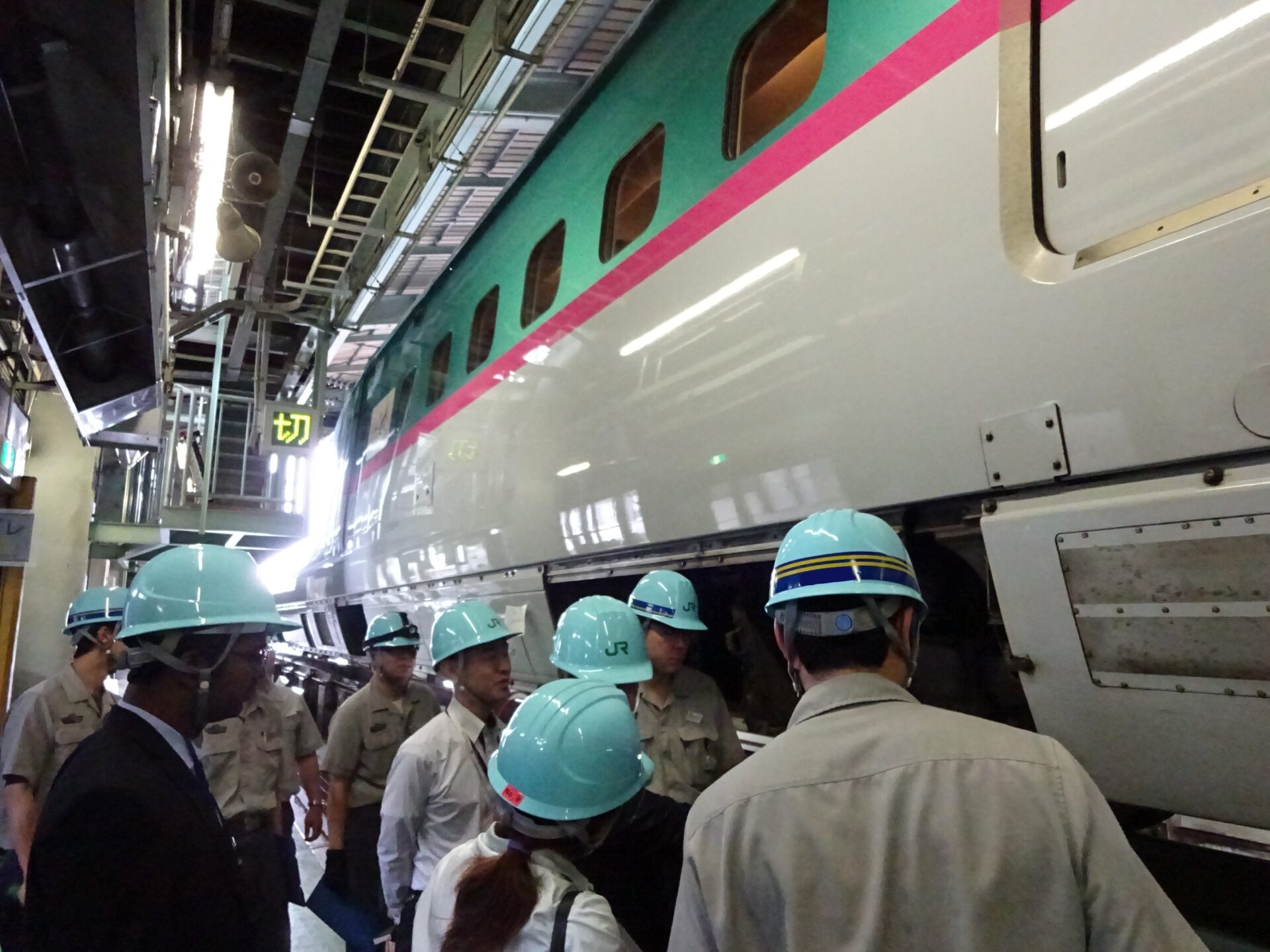Project Outline
At the Japan-India summit meeting in December 2015, the two parties signed a Memorandum of Understanding (MOU) to cooperate in introducing the Shinkansen systems on the Mumbai-Ahmedabad high speed rail and an agreement to strengthen cooperation between India and Japan in human resource development in the railway sector.
Based on this MOU, a training visit to Japan was organized from February 2017 to January 2020 for young officials from the Ministry of Railways of India and staff members from the National High Speed Rail Corporation Limited (NHSRCL), who are responsible for the high speed rail project between Mumbai and Ahmedabad. The training program was provided to give lectures and host technical visits under an “All-Japan” framework by 36 companies and corporations in cooperation, including JR companies, private railway companies from different regions and companies in the railway sector.
The training program had 24 sessions for a total of 877 participants. JIC and the Japan International Cooperation Center (JICE) formed a joint venture and played a central role in the planning and operation of the training program.
Through this training course, the participants had many comments. Typical examples are listed as follows:
– We would like to establish new guidelines for punctuality and safety in India;
– We would like to have a training center in India similar to those of Japanese railway operators to provide detailed practical training for front-line employees; and
– It takes time to develop a culture, but we would like to share what we have learned in Japan among our employees to provide behavioral changes.
Training Content (examples)
- Training Orientation
The concept of punctuality/on time, the essence of Japanese railways, was introduced to the Indian trainees to have them aware of practicing punctuality during the training.
- Lecture
Lectures cover topics such as the characteristics of Japanese Railways, safety management, theory of Japanese Railway Technology, station development, and transportation nodes.
- Visits to railway-related companies, etc.
Technical visits include training centers of railway operators, rolling stock centers, control centers, terminal stations, railway museums, rolling stock manufacturers, and railway equipment manufacturers.
- Debriefing and training summary
 |  |
